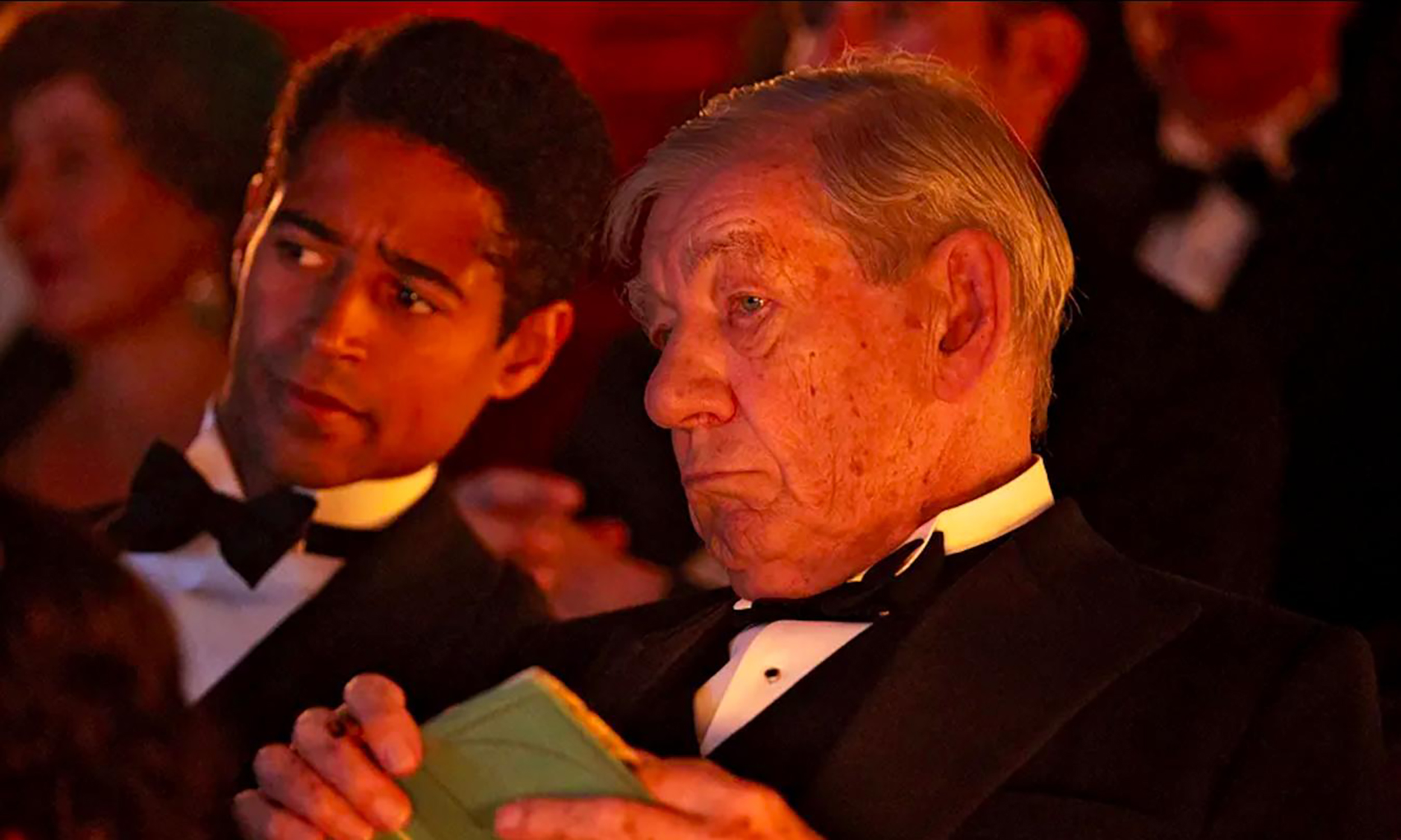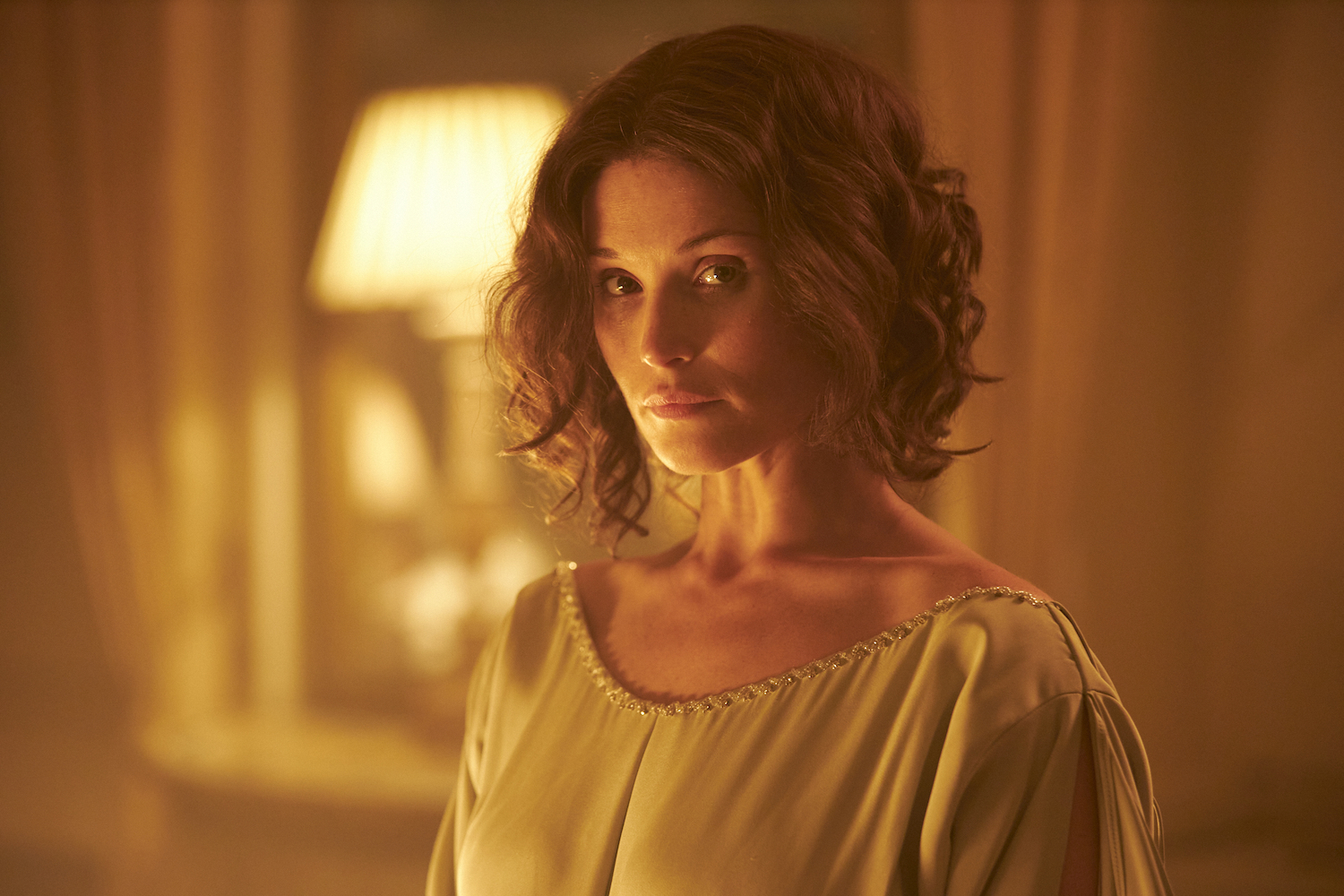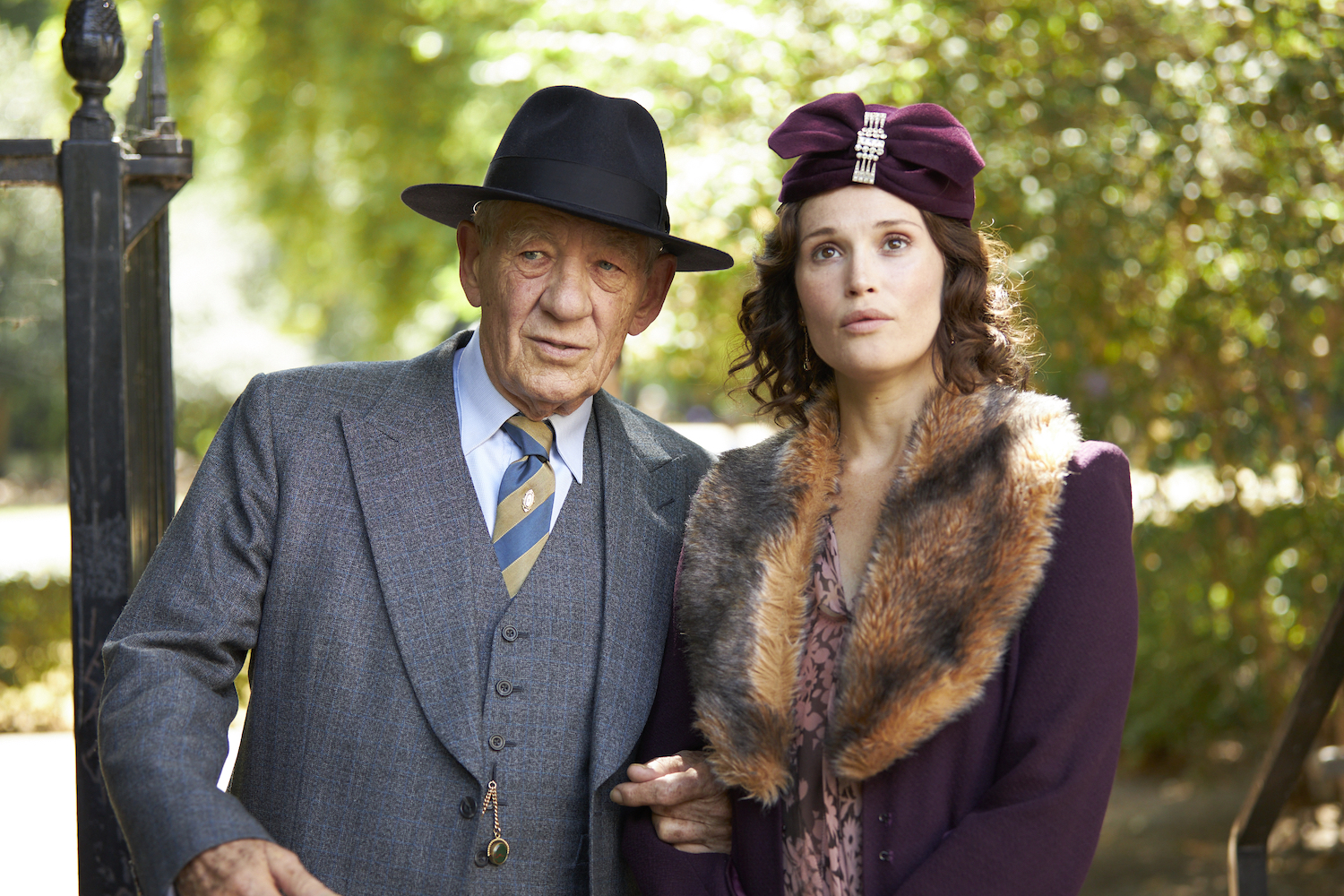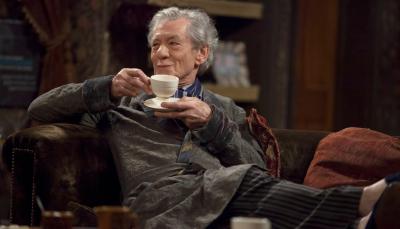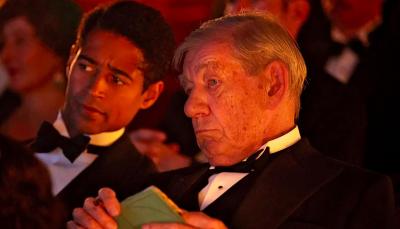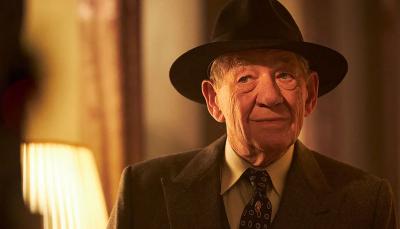Ian McKellen's Ferocious Performance Makes 'The Critic' Worth Watching
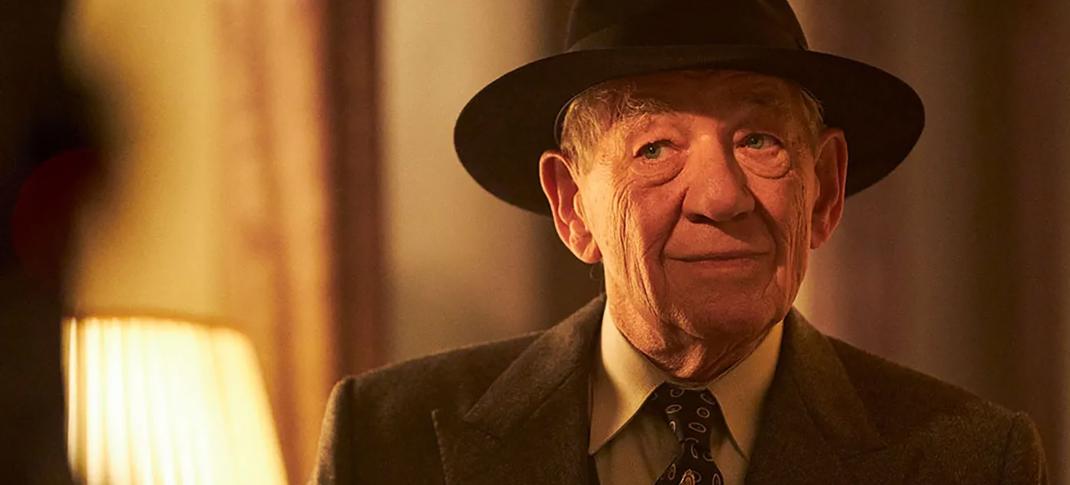
Ian McKellen as Jimmy Erskine in 'The Critic'
Lionsgate/True Brit
Certain performers are so good at their craft that it would be enjoyable to watch them do pretty much anything, including reading the phone book, as the old saying goes. A bit of cultural translation for the youth among us: Once, not so very long ago, we literally printed everyone's names and contact info in vast tomes that got delivered to your front door. As a thought exercise, picture your favorite actor reading nothing but a monotonous list of names and ten-digit numbers for three hours and see how much you still love them then. It's likely to be a vanishingly short list, but it's almost equally likely that, for many of us, the great Sir Ian McKellen will be among those on it. (Fun fact: I once watched him do this at a charity event and it was, predictably, great.)
McKellen, now in his mid-eighties, is a legend of stage and screen, whose most famous rules have included performing everything from Shakespeare to J.R.R. Tolkien. And while his latest film, The Critic, is unlikely to be remembered among his best, at this stage in his life and career, our allotment of future McKellen performances is rapidly dwindling and it's best to just embrace whatever we can get with both hands.
It helps that McKellen's performance is far and away the best part of The Critic, a ferocious, desperate turn as a ruthless theater reviewer willing to do anything to hold on to his small corner of power and influence. His character is deeply unlikeable, frequently cruel, and more than a bit unhinged, but McKellen somehow manages to imbue his relentless air of self-importance with shreds of genuine pathos. It's a portrayal that honestly deserves a better movie around it, but one that can still be enjoyed for its own sake, despite the film's larger narrative flaws.
Set in 1930s London, the story follows McKellen's Jimmy Erksine, the longtime theater critic at The Daily Chronicle, who has built both a career out of verbally shredding performers and productions and a lifestyle out of the status and influence that his bitchy reviews have granted him.
The Critic features a few all-too-brief moments in which we're reminded that Jimmy did, at least at one point, love theater for its own sake and that, in a way, his vitriolic screeds are a means of fighting back against what he sees as England's lowering cultural standards. But for the most part, he seems to do little more than take a sadistic glee in torching both careers and livelihoods for no reason other than the fact that he can.
Erskine has a particular inexplicable dislike for an up-and-coming young actress named Nina Land (Gemma Atherton), whose work he always roundly disparages and whose confidence he delights in tearing down.
But when the Chronicle's owner dies, the paper passes into the stewardship of his son, the new Viscount Brooke (Mark Strong). While his father valued staff members with strong opinions, Brooke is eager to make changes , planning to shift the paper in a more "family-friendly" direction. This includes toning down the obvious support for fascism in its pages and ditching troublemaking or otherwise problematic employees. Jimmy's various proclivities, from his indulgent cattiness to the open secret of his homosexuality are not something the Chronicle's new leadership is particularly interested in and he doesn't last long under the new regime.
Determined to get his job back, Jimmy turns to Nina for help, promising her the positive reviews --- and subsequent stardom --- she's always longed for in exchange for her assistance in ensnaring Brooke in the sort of blackmail plot that would complicate both his marriage and his paper's newfound dedication to employee morality.
This is where the film shifts gears from dark comedy into full-on melodrama, abandoning anything like nuance or depth in favor of "shocking" plot twists and the sort of convenient character choices that rely on someone being the stupidest possible version of themselves at any given moment. But as the bad decisions snowball and literal bodies pile up, the whole thing starts to feel more contrived than sly.
Arterton more than holds her own opposite McKellen; the two have a crackling chemistry and some of the film's best scenes are ones they share. The Critic is at its best when it's exploring the strange symbiosis between artists and those paid to critique them, and it's a narrative thread the film doesn't explore nearly deeply enough. Particularly given our current cultural moment, where staff writers are being replaced en masse by poorly paid freelancers and sloppy AI, there's something almost quaint in the idea that the word of one critic, no matter how well-known they might be, is worth the chaos that ensues.
Yet, the offbeat relationship between Jimmy and Nina is simultaneously antagonistic and strangely charming: She longs for his good opinion of her work, he's never liked her performances, but they both share an understanding and a love of drama as an art form that sets them apart from the everyday citizens whose lives don't revolve around its creation. In a different world, one where Jimmy is a man capable of forming genuine bonds with others, it feels as though they really might have been friends.
If The Critic's final act has any propulsive fizz it's almost solely due to McKellen's performance, as he tears into Erskine's rapidly unraveling psyche with an almost unhinged glee. The man is clearly having a blast, and his performance genuinely elevates the material in ways that make it look better than it probably has any right to.
The film's supporting cast is all-around excellent, though mostly wasted in thankless and underwritten roles. Strong fares best, if only because Brooke's entire personality consists of being boring and inoffensive. Romola Garai's sharp, sly turn as his bitchy sister is wasted on just a handful of scenes. and Lesley Manville's appearance as Nina's overbearing, awkward mother is memorable only in that she declares her daughter "audible" after an so-so opening night performance.
And while Alfred Enoch plays a key role in the film's ending, The Critic seems largely uninterested in Tom and Jimmy's relationship. As his live-in secretary, it's obvious enough to anyone who cares to look that the two are together, romantically speaking, and in 1930s England that's a statement in and of itself. But beyond the fact of their relationship, The Critic has almost zero interest in them as a couple, and I'd be hard-pressed to tell you how the two got together or what either sees in the other. (Or if, in fact, they actually even care about one another at all!)
On the plus side, the fact that the characters around Jimmy are so drab and uninspiring makes his acidic prose and sharp one-liners glitter all the brighter. It's easy to cheer for his increasing string of dark deeds, though we know we shouldn't, simply because he's so much fun to watch. But darkness isn't a substitute for depth, and while McKellen remains a miracle worker, even he can only do so much.
The Critic is now in theaters.

